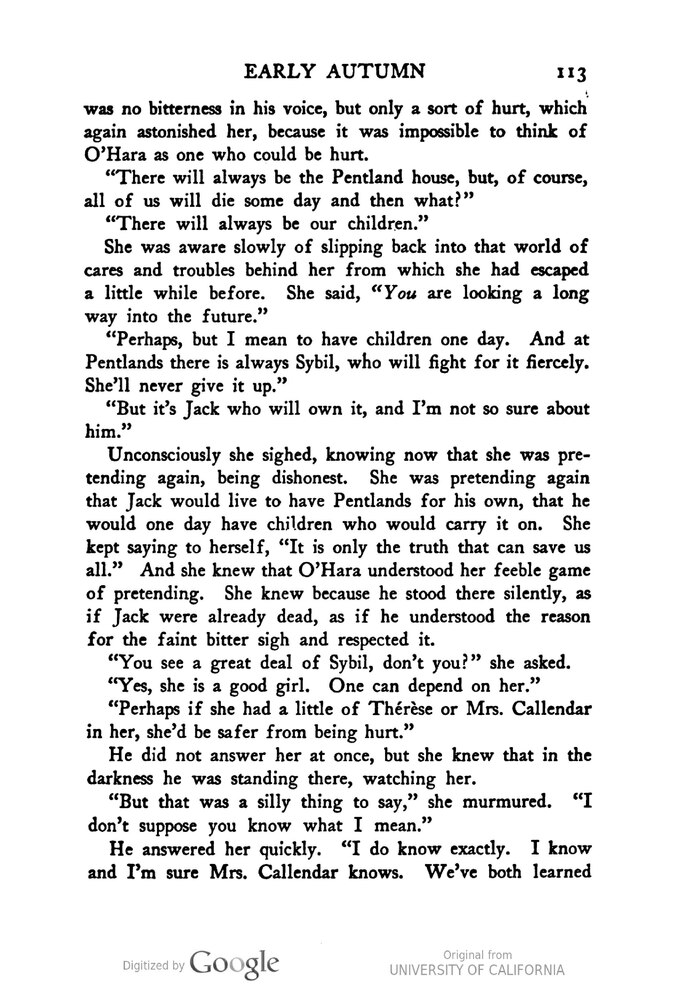was no bitterness in his voice, but only a sort of hurt, which again astonished her, because it was impassible to think of O'Hara as one who could be hurt.
"There will always be the Pentland house, but, of course, all of us will die some day and then what?"
"There will always be our children."
She was aware slowly of slipping back into that world of cares and troubles behind her from which she had escaped a little while before. She said, "You are looking a long way into the future."
"Perhaps, but I mean to have children one day. And at Pentlands there is always Sybil, who will fight for it fiercely. She'll never give it up."
"But it's Jack who will own it, and I'm not so sure about him."
Unconsciously she sighed, knowing now that she was pretending again, being dishonest. She was pretending again that Jack would live to have Pentlands for his own, that he would one day have children who would carry it on. She kept saying to herself, "It is only the truth that can save us all." And she knew that O'Hara understood her feeble game of pretending. She knew because he stood there silently, as if Jack were already dead, as if he understood the reason for the faint bitter sigh and respected it.
"You see a great deal of Sybil, don't you?" she asked.
"Yes, she is a good girl. One can depend on her."
"Perhaps if she had a little of Thérèse or Mrs. Callendar in her, she'd be safer from being hurt."
He did not answer her at once, but she knew that in the darkness he was standing there, watching her.
"But that was a silly thing to say," she murmured. "I don't suppose you know what I mean."
He answered her quickly. "I do know exactly. I know and I'm sure Mrs. Callendar knows. We've both learned
